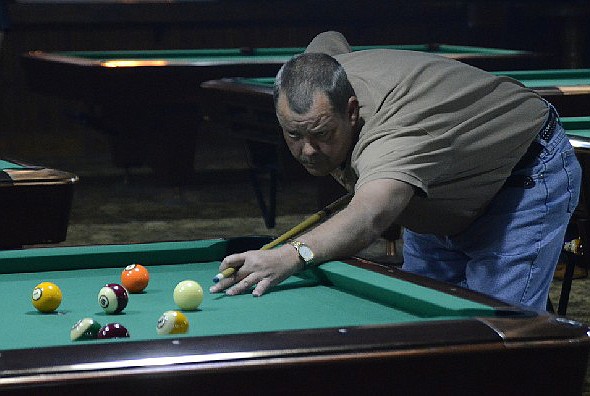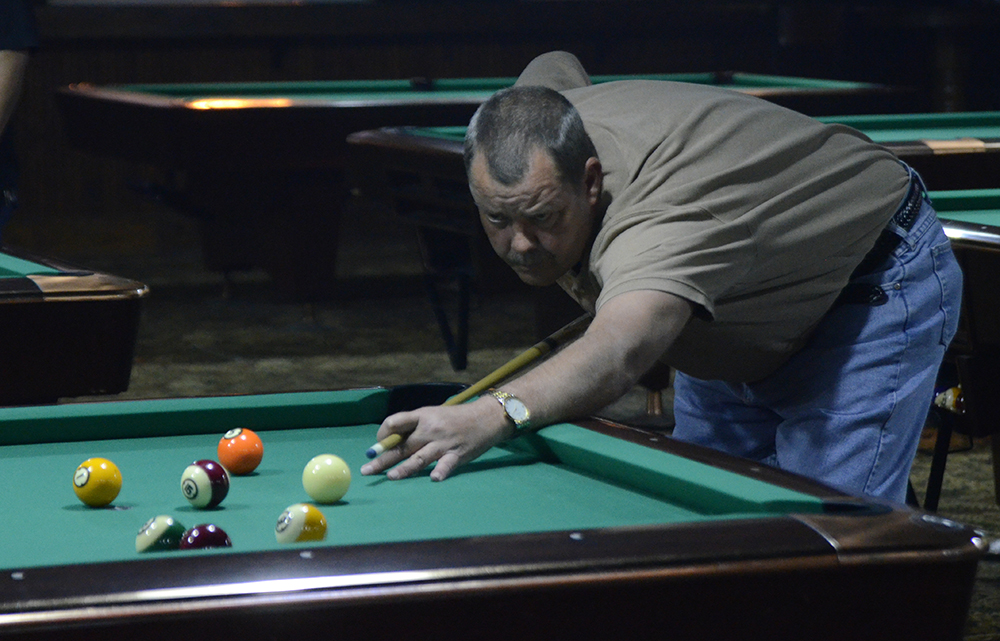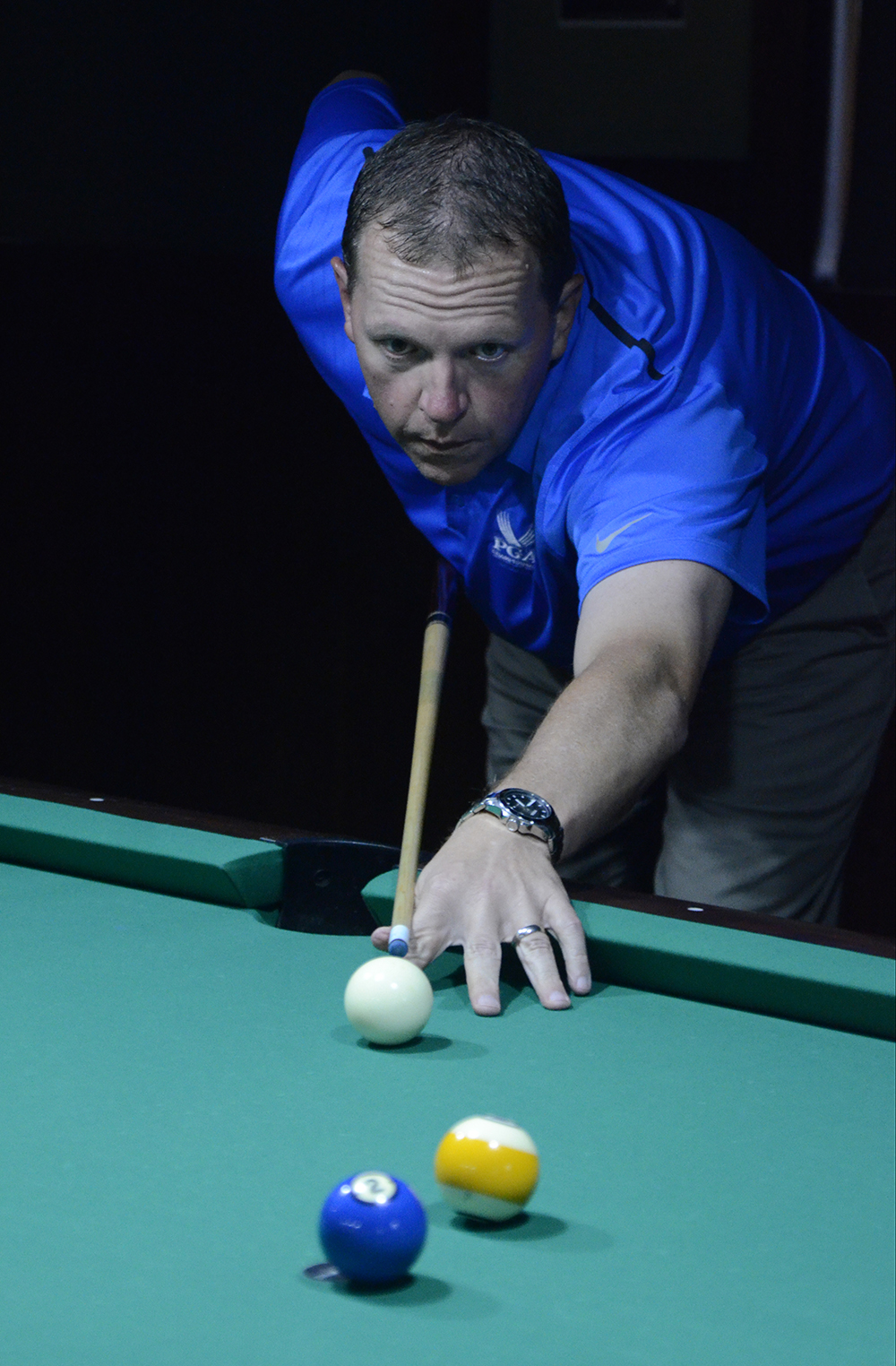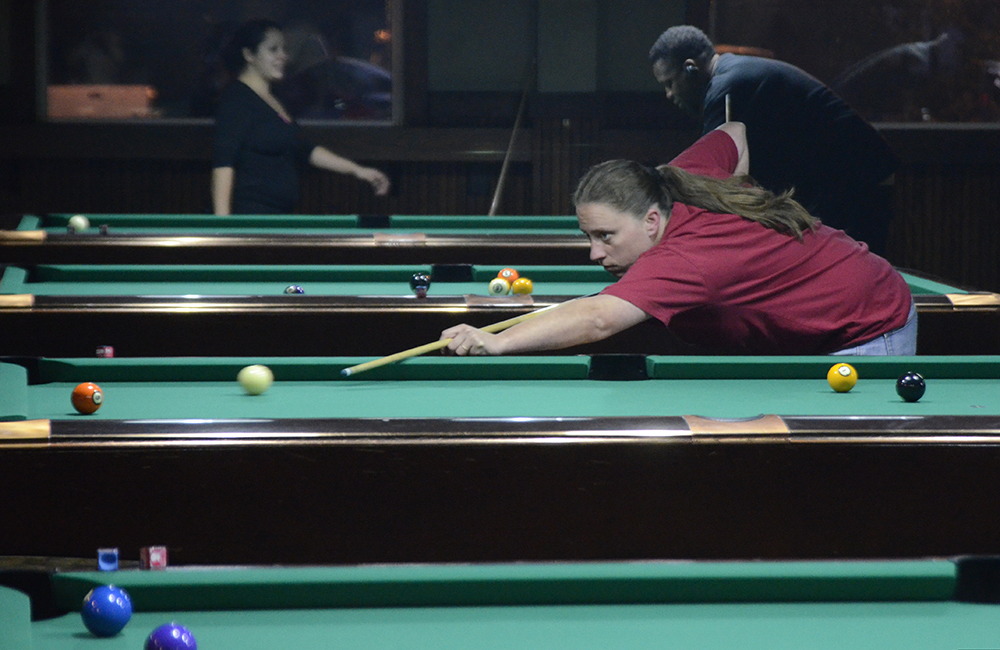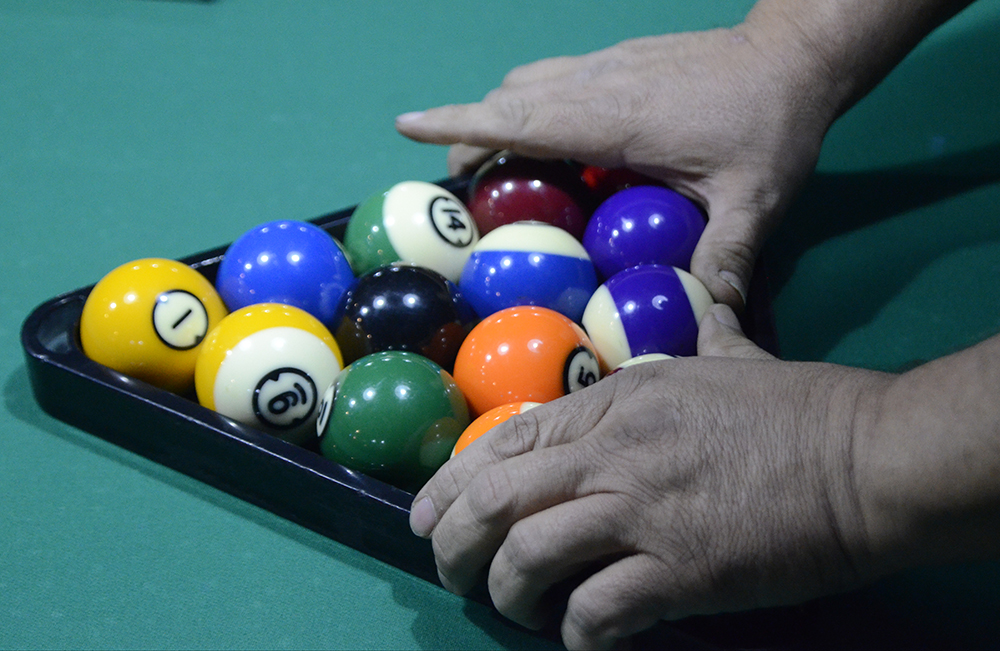Join upBecoming a member of the local franchise league of the American Poolplayers Association requires annual dues of $25 and a per-night cost of $6 per player. To register a new team, fill out the form at chattanooga.apaleagues.com/FormTeamRegistration.aspx. For more information, call league operator Valerie Reagan at 886-6903.
Although billiards has been her life's blood for almost a quarter of a century, Valerie Reagan doesn't get to rack up the balls nearly as often as she used to.
"If I go out in public and there's a pool table, I'm going to end up having to work because people recognize me and want to talk about their handicap," she says, laughing.
Reagan, 58, has no one but herself to blame for the demanding legions of billiards fans in Chattanooga. When she bought the local American Poolplayers Association franchise 24 years ago, the league had just 26 teams. Although she's quick to deny sole responsibility for the growth, the league has ballooned during her tenure to more than 1,400 players on 200 teams.
Per capita, the Scenic City has more pool players than any other city in the region. According to league operators, the APA franchise in Knoxville has 900 players while Nashville's has 1,200 players. At 2,384 members, APA-Atlanta's membership is larger than Chattanooga's but represents a smaller proportion of its population.
"There are a lot of dedicated pool players here," Reagan says. "Their passion for the sport is phenomenal. You either have what we call the 'pool bug' or you don't. The pool bug is potent in this area."
Despite its popularity locally, owning a billiards franchise hasn't always seemed like a safe investment. When Reagan tried to secure a loan to purchase the league from its former owner, restaurateur Nick Bowers, the bankers practically laughed her out the door.
"They looked at me like I had asked to buy a space station. They went, 'You want to do what?'" she recalls, laughing. "It's a very unlikely career. Nobody wakes up and says, 'I want to be a league operator one day.'
"There's a great sense of fulfillment to bring something in its early stages like this was and bring it this far."
During weekly sessions, APA members chalk up at 16 bars and pool halls from Chattanooga to Soddy-Daisy to Cleveland, Tenn.
The teams that win each of three 14-week sessions then go head to head during a citywide tournament each June. The finalists from that tournament receive a free trip to Las Vegas to compete at the APA national championships.
Every year, Reagan says, she pays out about $40,000 to cover trophies and players' travel expenses.
Chemical engineer Troy Vannatta, 52, began playing APA pool in Chattanooga in 1994. The same year, his team finished second in the citywide tournament and flew to Vegas.
"We thought it was the easiest thing in the world," Vannatta recalls, laughing. "We haven't been back since."
And in the last few years, he says, the field of competitors has swelled noticeably.
"I've definitely seen the growth." Vanatta says. "The tournament takes on more players and more teams. It's really has grown over the years."
A bond of felt
The APA uses a handicap system to calculate and track each player's skill level on a scale from 2 to 7, with lower numbers assigned to less-skillful players. Vannatta, who has been playing billiards since he was 13, has been a steady 7 for about eight years.
Although he has a table at his home in South Pittsburg, Vannatta says he rarely shoots a break there, preferring to chalk up at the Chattanooga Billiards Club's downtown location on Cherry Street. Pool is as much a social activity as a competitive game, he says.
Even when he was commuting to Franklin, Tenn., a bedroom community south of Nashville, Vannatta says he arranged his work schedule so he could be in Chattanooga to play on league nights.
"To me, it's all about playing somebody to win," he says. "I mean, I can't beat myself. I can try as many times as I want, but it never works out.
"It's a bonding thing."
Social interaction is a common reason cited by league members for why they shell out $25 in annual dues and $6 a week to compete.
When Emily Barlett, 35, and her sister, Rebecca Wilson, 37, joined the league 12 years ago, they were recruited by Reagan's mother - 83-year-old Denise Reagan - to join the women's division. Later, they began playing on teams in the co-ed team division.
Bartlett quit the league two years ago to save money and avoid spending time in bars, where pervasive smoke made it difficult for her to kick her cigarettes habit. For about a decade, however, league nights were one of her primary social outlets.
"We met all sorts of people in pool league, people all across the city who we wouldn't have met otherwise," she says. "Two of the women I played with in women's league are married or about to get married to guys they met there."
That women are interested in playing pool in Chattanooga is another sign of how drastically the city's billiards culture has changed over the years.
When Reagan took over the franchise, she describes the league as decidedly male-dominated. Changing that perception was one of first challenges she faced.
"I had to hang in there and earn their respect," she says. "It's come so far in all these years. We've got so many nicer places to play. It's not just shady, backroom, smoky, dark places that women are afraid to go to. That's helped tremendously."
Now, the gender divide in the league is much less stark, with women representing "close to half" of the 1,400-strong membership, she says.
Slowly dwindling
Although she's pleased that Chattanooga's pool community has grown to such vast proportions, Reagan says its growth seems contradictory, given the number of local pool halls that have closed in the last five years that once hosted the APA.
When doors shut on Double Hill Billiards earlier this year, the league lost access to 16 tables, Reagan says. And when Parkway Billiards reopened in 2011 as The Honest Pint, the new owners shied away from hosting APA games on the bar's tables due to concerns that renegade balls might clear the second-floor railing and descend onto patrons like spherical meteors.
"That's a liability issue," Reagan says. "It's happened."
As a result, the billiards landscape in Chattanooga is at its most compact in years, despite having its largest membership ever.
"We're not suffering for lack of players," Reagan says. "We're suffering for lack of locations. It's slowly dwindling."
Despite the loss of some halls, Reagan still has dozens of league-suitable, 8-foot tables to host games on, including about 40 between Charlie's Lounge in Soddy-Daisy, Diamond Billiard Club on Hixson Pike and the CBC locations downtown and on Shallowford Road. Many other locations also host league play, even those with just three to five tables.
Though the amount of green felt is on the decline in Chattanooga, league operators in other cities say Scenic City's crop of pool halls is the envy of the region.
"Chattanooga is pretty close in size to Knoxville, but down in Chattanooga, there are what we consider true pool rooms where they have 10 or more tables," says Paul Baird, the league operator for the 11-county Smoky Mountain APA that serves Northeast Tennessee.
"I've got two locations that have eight or more tables. Everywhere else is just one- or two-table locations," Baird adds. "Per capita, there are more pool halls down in Chattanooga."
Contact Casey Phillips at cphillips@timesfreepress.com or 423-757-6205. Follow him on Twitter at @PhillipsCTFP.
